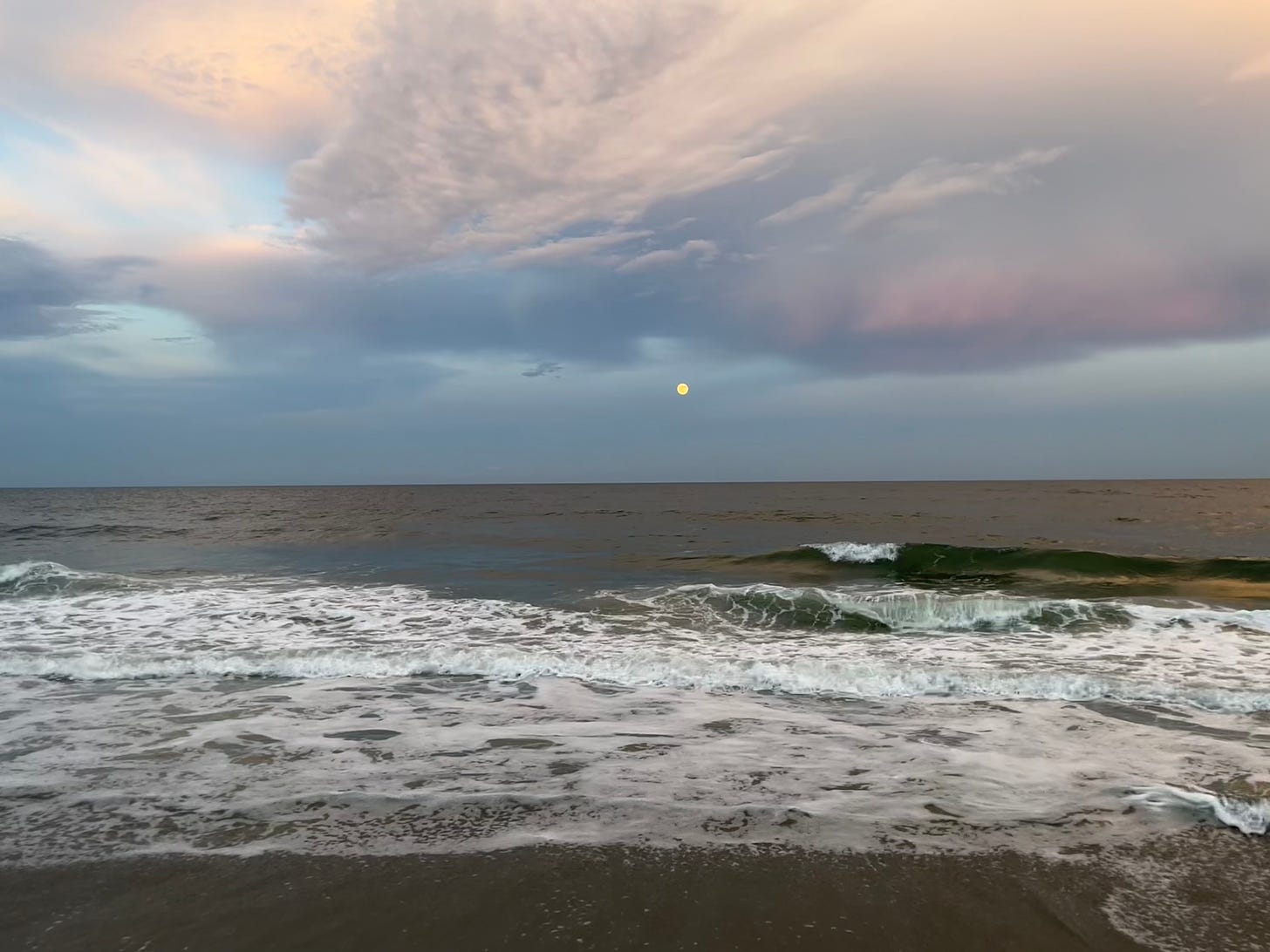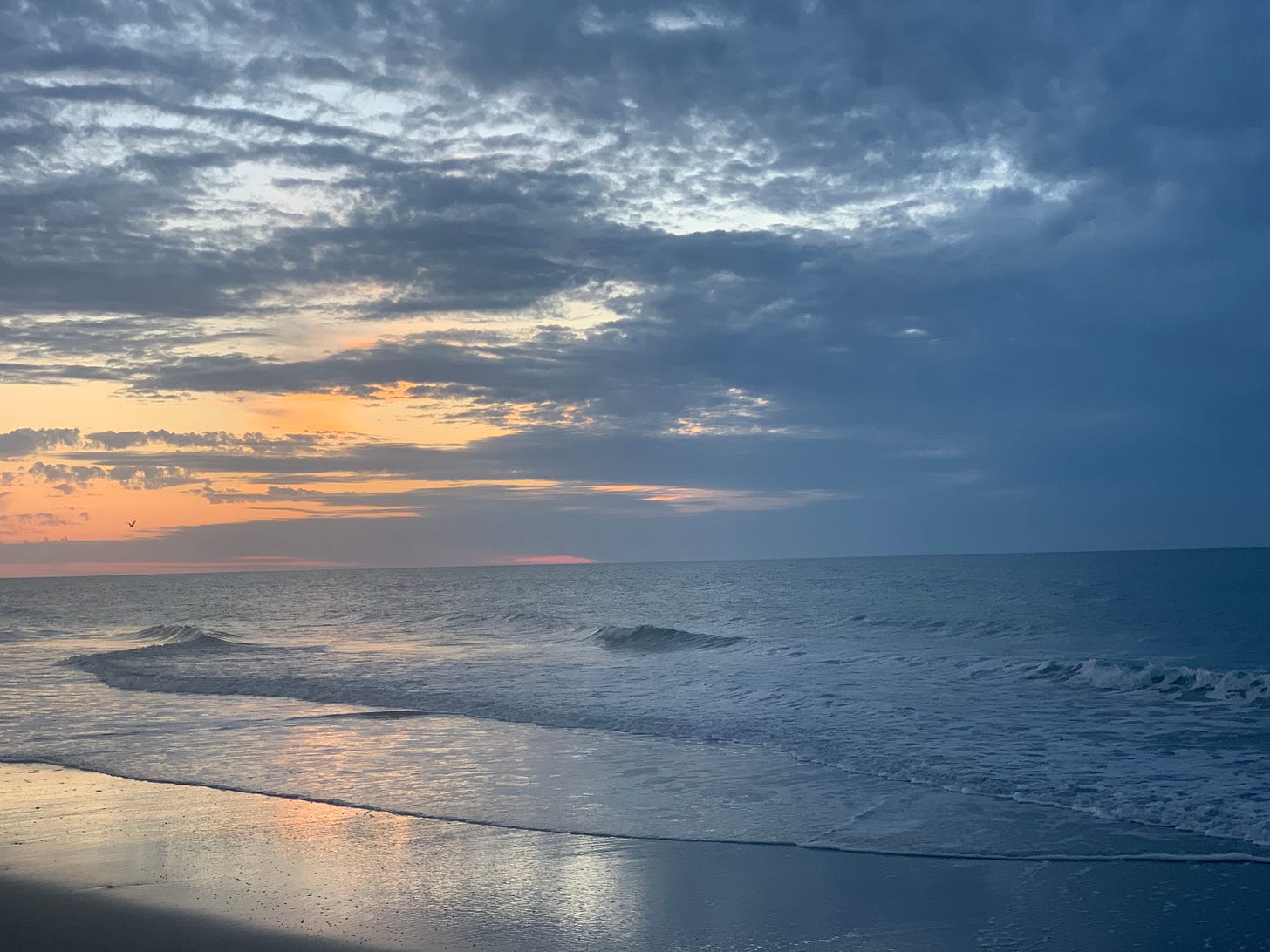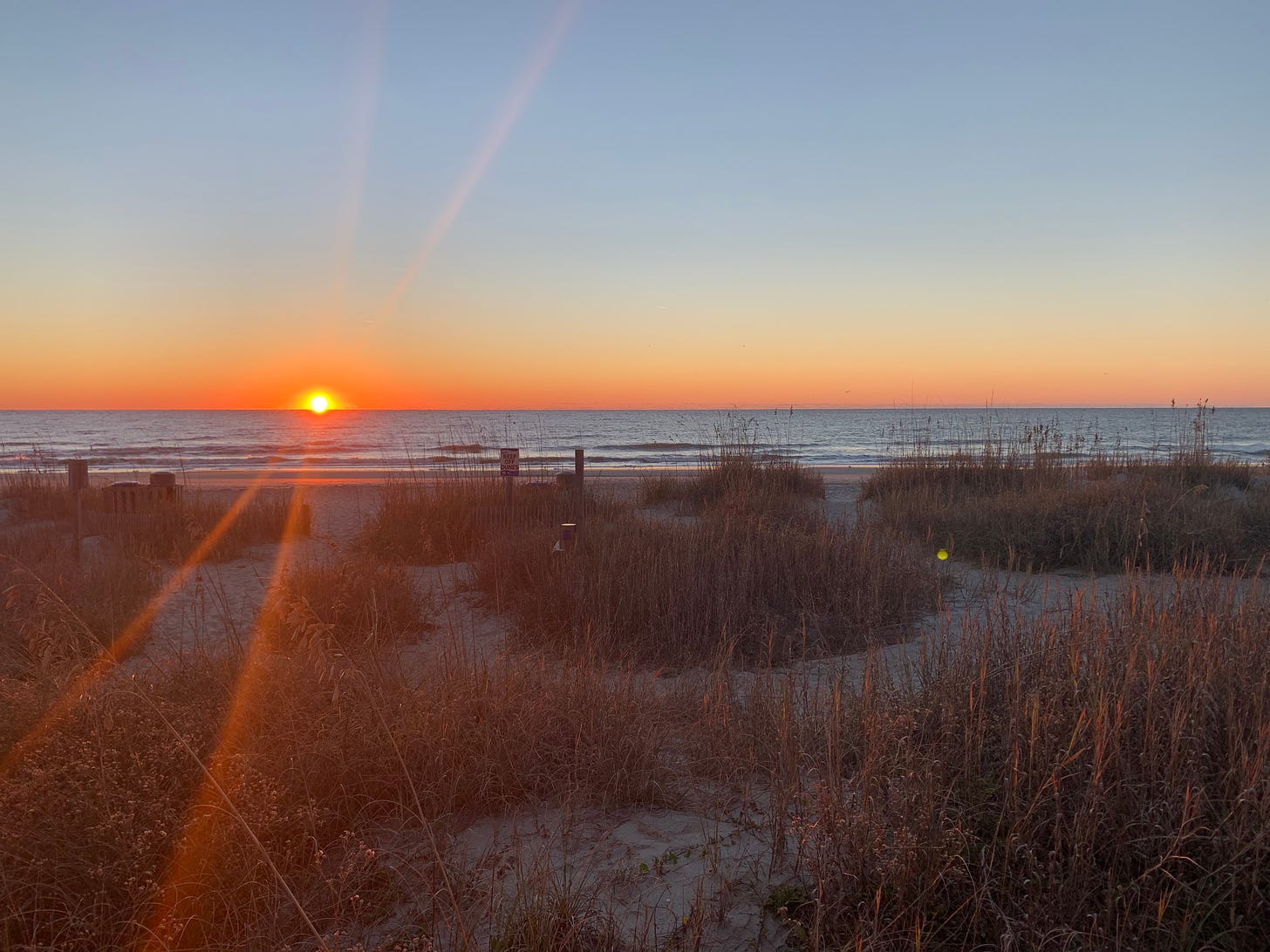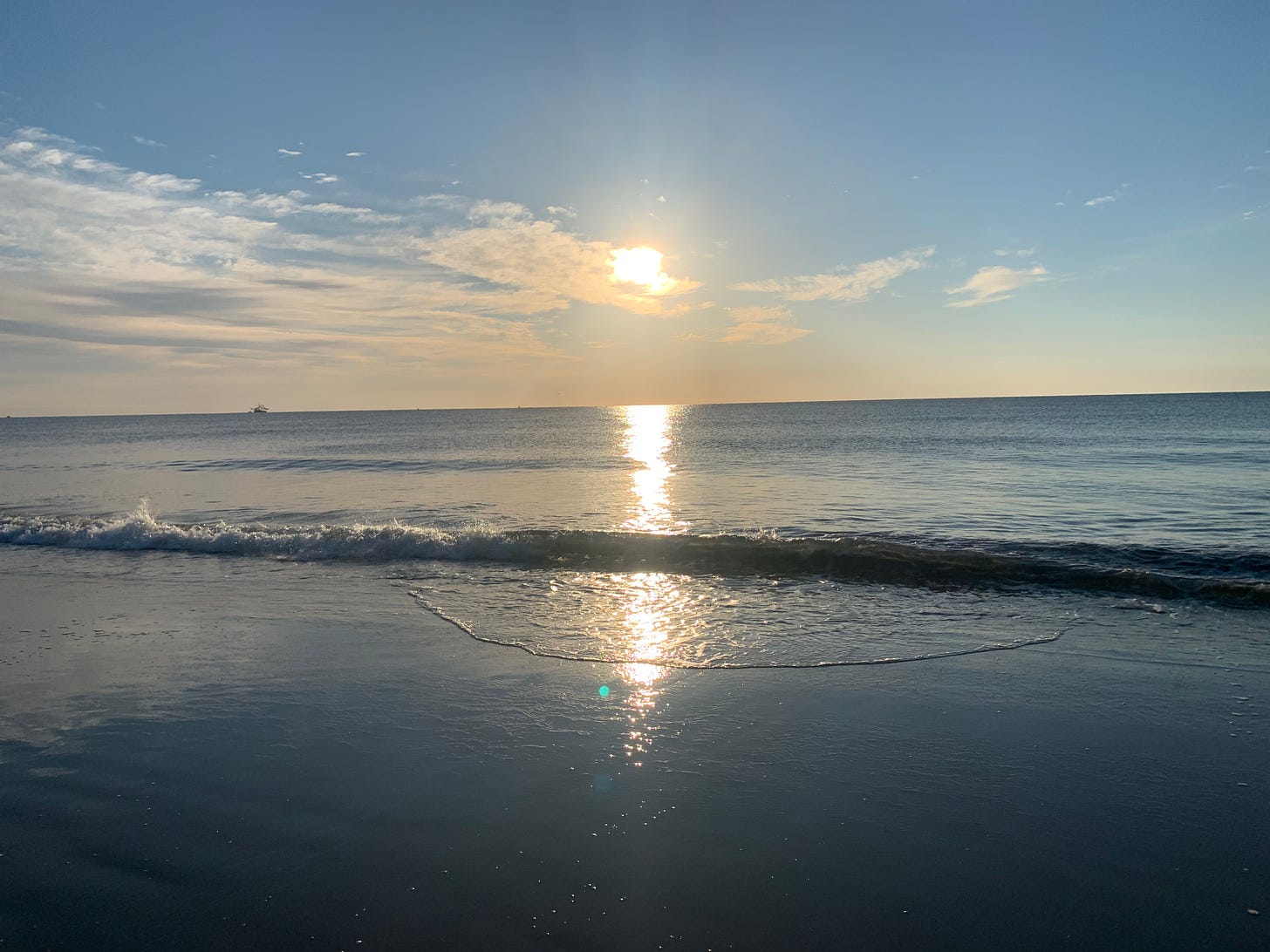Deep Waters
I had mostly completed post ready for today continuing the theme of apologetics for the abused, but decided to share a rough draft poem I wrote yesterday. My daughter and I visited the beach for the first time in two years after our functional excommunication from our church and home that was 1.5 miles from the ocean. The beach was the thing that both I and my daughter missed most, and seeing it again, hearing it again, smelling it again, feeling it again was a cold bath of conflicting emotions. I hope it resonates for you, dear reader.
A poem shouldn’t be explained, and if it needs explaining it’s probably not a good poem, but one note about the word “symbol”: it comes from the Greek word symballō. While words aren’t the mere sum of their parts, it is a combination of the preposition “with” and the verb “throw,” as in, to throw with or together.
Also, for each post in the first six months of this Substack I used pictures of the beach I walked on 3-4 times per week. I took the picture at the top of this week’s post yesterday, and the rest are from over two years ago.
Deep Waters
Text within this block will maintain its original spacing when published
Water is a symbol: Like a ball from the Atlantic Thrown in your face By the salty surf, It slaps and stings And refreshes; In the hot summer, at least. But here, two years Since I last saw these waves I was waving goodbye To the big face of the moon Ominous over the ocean At evening high tide, So big it pulled out and pushed in Wave after wave with Each breath in and breath out.
This is the last time I was at the ocean at Surfside Beach. My phone didn’t capture how impossibly huge the moon was that evening.
Text within this block will maintain its original spacing when published
Water is a symbol: Some waves go back To the ocean but Some waves dry out On the shore, Lost in the sand Silently. Unless you bend your ear To the ground: You can hear the soft sizzle As your soul seeps down Underground.
Text within this block will maintain its original spacing when published
Water is a symbol: Of opposites: Dry the sand, dry the soul, Near lifeless, Like the man We saw today Brought back to shore By six lifeguards After being ripped away By currents hidden under The calming, mesmerizing waves. I could die a dry death Of sweltering thirst on the sand And I could die a wet death From drowned lungs pulled under. But like the shore, At once both water and land, Wet and dry, The wolf-born scattering From my former seaside fold Into the landlocked heart Of this country Has simultaneously scattered my heart Into nights of drowning And days of thirst.
Water is a symbol. It can pull you under Pull you in Until you’re covered With wet despair.
Text within this block will maintain its original spacing when published
Water is a symbol. Memories flood in. Awash in longing For long walks Along the shore Each sunrise Fresh proof of love.
Water is a symbol: No two drops the same, But they feel alike, From the Atlantic, To the Pacific, And the leaky tap In the basement faucet, It basically feels the same. And yet the same sun That shined like silver Off the water Each morning in Surfside, On each side of my face Walking south and then retraced North, The same Sun Doesn’t feel the same One thousand miles inland.
Water is a symbol: Of spirit hovering Over chaos Otherwise unrestrained.
Text within this block will maintain its original spacing when published
Water is a symbol: Of birth Of life As water Pushed out Painfully from The riven side By birthing breaths Of Spirit and Son.
Quote from David Herrstrom
“Jesus loves water as the natural symbol of paradox…The surface of John’s book, consequently, undulates above deep waters.”1
Question
What do you do, or have you done, when something that brought you great joy becomes, after trauma, a clash of conflicting emotions? Do you think it’s possible to regain that joy? Can that formerly joyful activity or thing be transfigured? Or does it feel permanently disfigured for you?
1 David Sten Herrstrom, The Book of Unknowing (Eugene: Wipf & Stock, 2012), 74.




